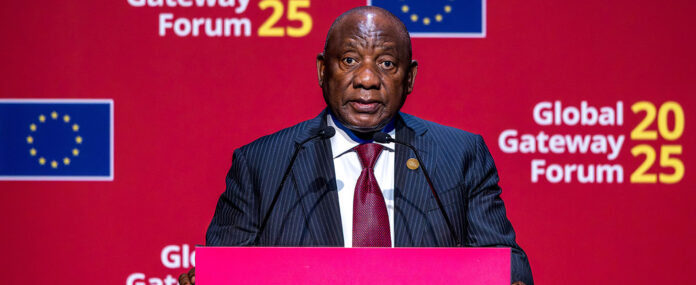A senior research editor at Issue Insight has rejected US President Donald Trump’s claims of a so-called “white genocide” in South Africa, describing the allegations as baseless, misleading and politically motivated.
John Kavulich, a US analyst who has visited South Africa multiple times, said Trump’s assertions reveal “a lack of race appreciation” and a habit of reducing complex issues to simple transactions.
He argued that Trump “thought that South Africa is an easy target” and acts like a “bully” because he has the power to impose tariffs and sanctions with little resistance.
Trump has repeatedly claimed, without evidence, that white South Africans face discriminatory treatment, a view that influenced his decision to pull back from the summit.
In February, Trump went as far as signing an executive order directing US agencies to assist with the resettlement of white South African farmers, whom he described as victims of “unjust racial discrimination”, and to reduce aid to Pretoria.
But very few Afrikaners have taken up his offer.
Kavulich, who identifies as a Caucasian white visitor, stressed that his own experiences in the country sharply contradict the narrative being circulated abroad.
“I have not experienced anything along the lines of what president Trump is saying. My experience visiting SA has been amazing. I have been to three G20s, each with its own unique atmosphere,” he said.
He acknowledged the major financial effort South Africa has invested in hosting the G20 but emphasized the long-term
benefits.
“Thousands of journalists will be here telling South Africa’s story,” he noted. Kavulich added that the absence of global heavyweights such as Trump, China’s President Xi Jinping, Russia’s Vladimir Putin, and the leaders of Mexico and Argentina has created a rare diplomatic opening.
Without their dominating presence, he said, “other heads of state will get an opportunity to speak about issues quietly”.
He explained that when a US president attends such events, world leaders often gravitate towards him, overshadowing broader discussions.
A Russian TV correspondent, Antoine Cleraux, echoed similar sentiments.
He said the “white genocide” narrative had reached him, but as a journalist, his instinct was to investigate rather than accept it at face value.
Since arriving in South Africa, he said he has “seen with his own eyes” that black and white citizens live peacefully alongside one another.
“This is actually a learning curve: that sometimes it is good to question narratives and see for yourself.” Two German reporters, who declined to be named, also dismissed Trump’s claims, saying the narrative gained no traction in Germany.
“We heard Trump talking about white genocide in SA, but it was never an issue for us or for the whole of Germany. “For us it was just Trump being Trump, and we never took him seriously.”



